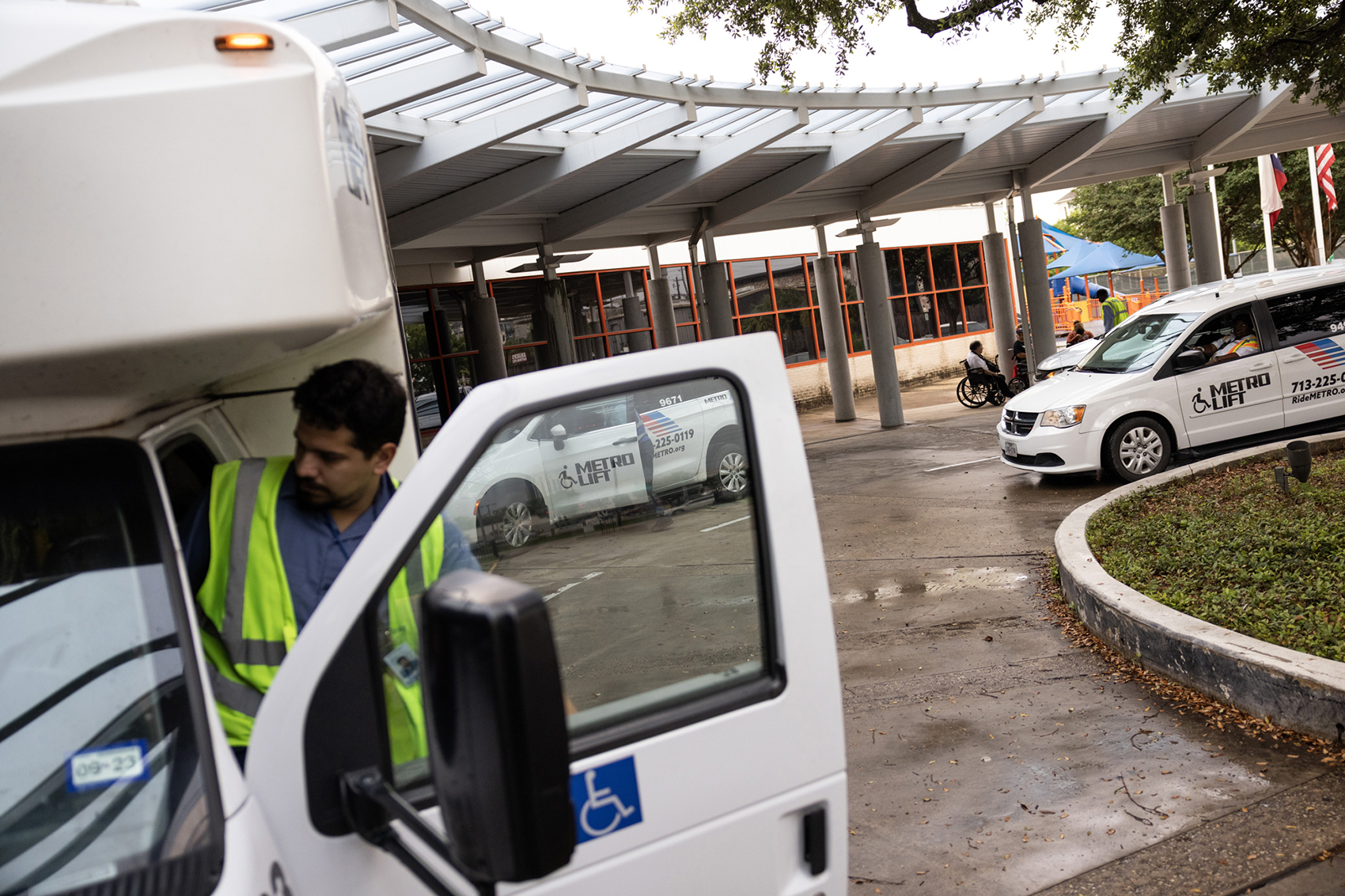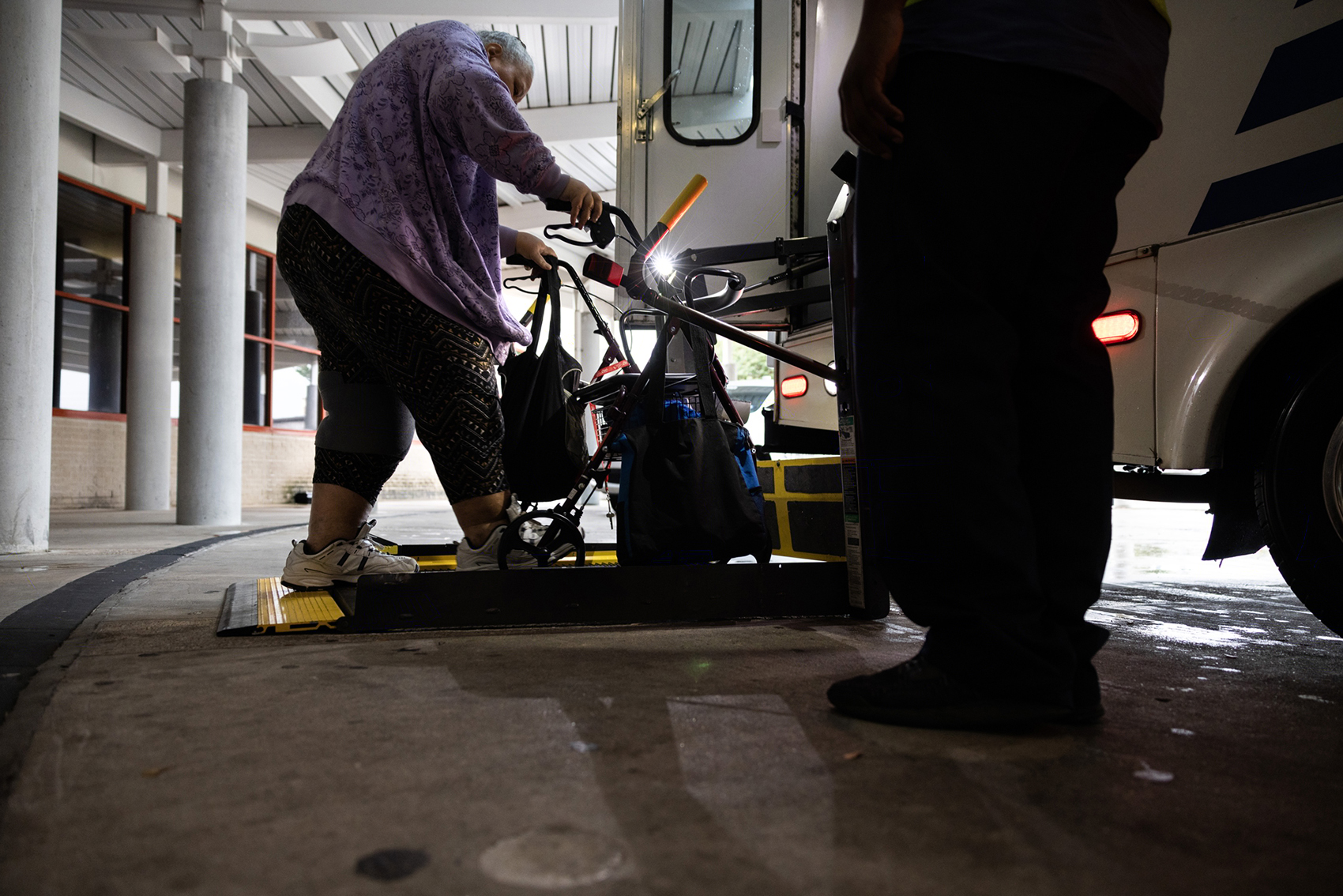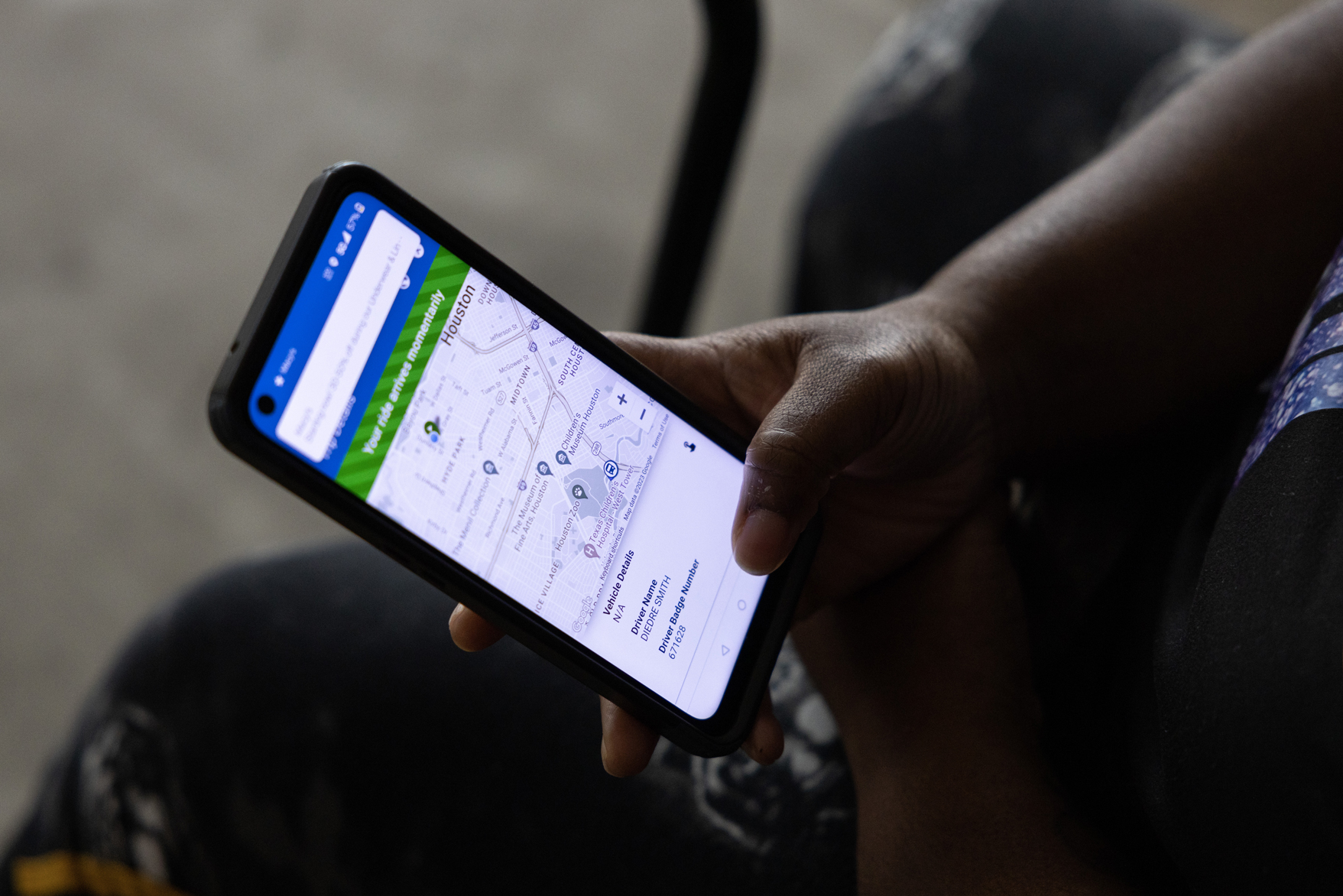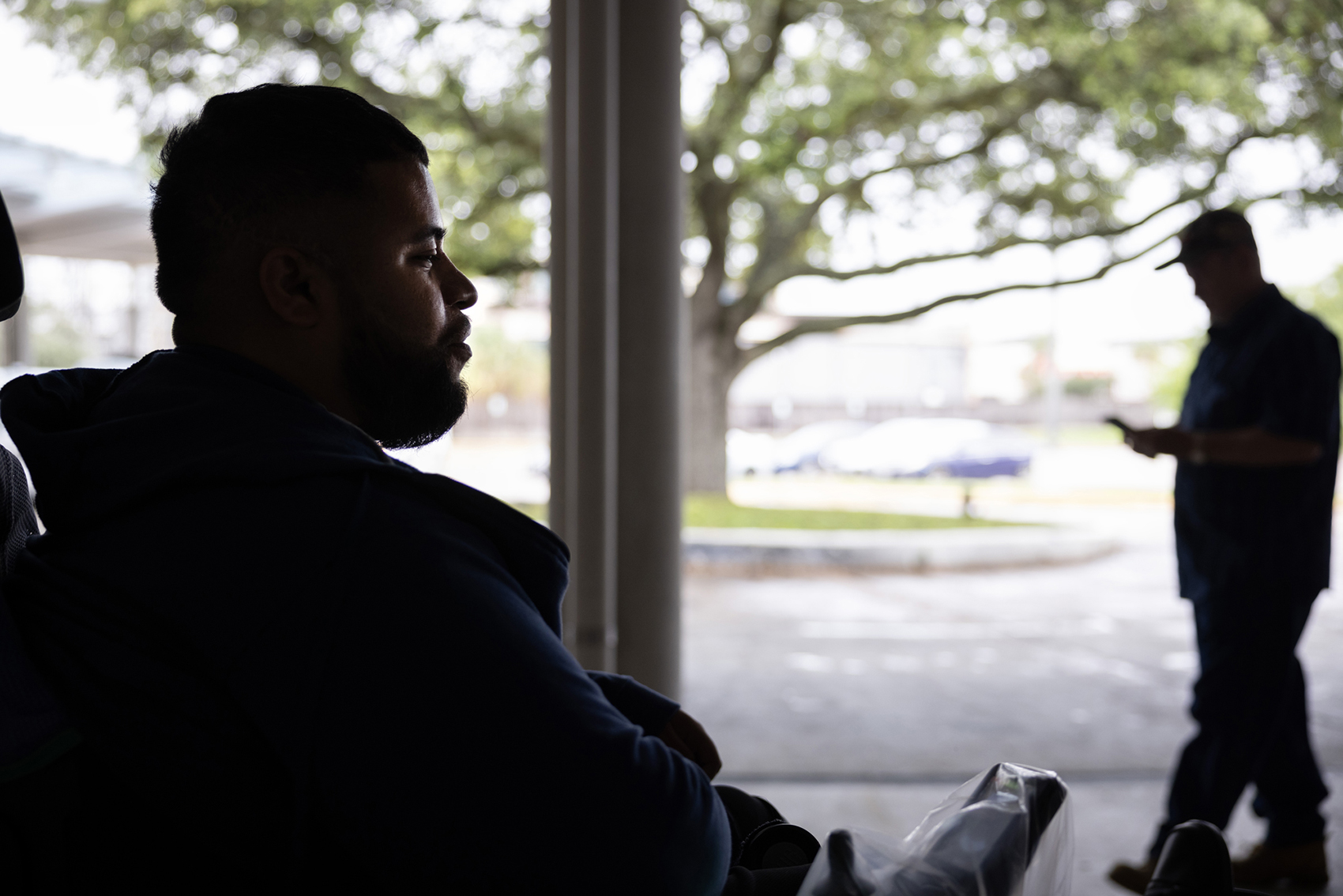|
Getting your Trinity Audio player ready...
|
George Battiste used to arrive at work either right at 8 a.m. when his shift started or nearly 15 minutes late. But it wasn’t because he lost track of time. It was because his METROLift ride sometimes took him 13 miles in the opposite direction of his destination.
Battiste, who is blind, relies solely on the Metropolitan’s Transit of Harris County’s rideshare paratransit service to transport him daily from his northwest Houston apartment to his job as a vocational rehabilitation teacher at Texas Workforce Commission’s Northline location.
The trip is roughly seven miles. But on various occasions last year, Battiste had traveled nearly 20 miles and spent an additional 30 minutes riding southwest when he needed to go east so that METROLift could pick up additional passengers.
On one occasion in October 2022, he was picked up at 6:40 a.m. and did not arrive at work until 8:17 a.m. Part of the delay was due to morning rush hour traffic after METROLift dropped off another passenger near the intersection of Gessner and Hammerly — about 15 miles from Battiste’s job.
“It’s just irritating,” Battiste said. “We don’t want to ride for an hour if we don’t have to.”
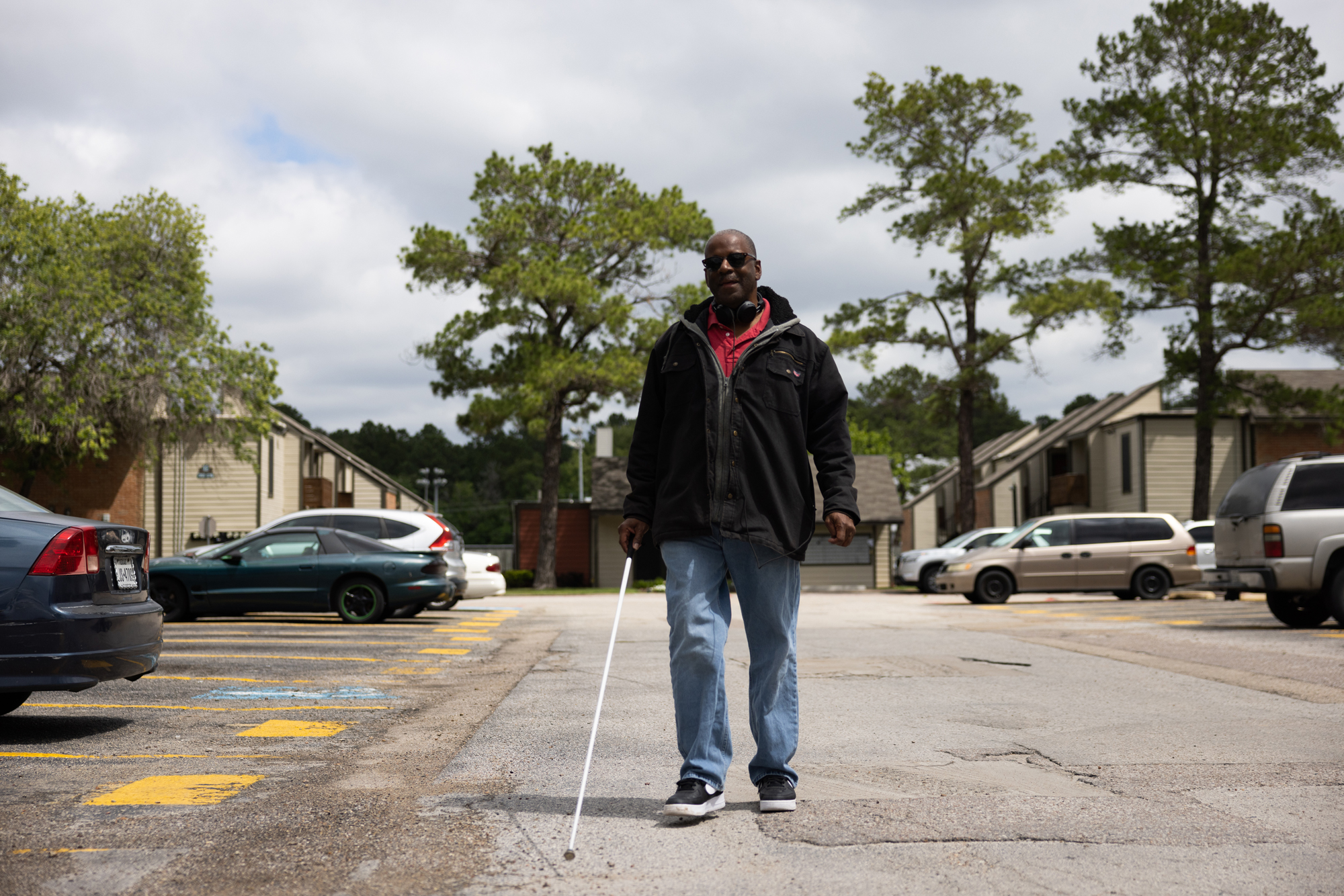
For thousands of people in the Houston region with cognitive, intellectual or physical disabilities, METROLift provides a vital service: affordable transportation whenever they need it.
But METROLift’s internal metrics show its drivers have struggled at times since 2022 to pick up riders or drop them off at appointments within 30 minutes of their desired time, and Battiste is among a number of Houston-area riders who have been forced to learn how to navigate the service’s shortcomings.
The agency’s goal is to pick up riders within 30 minutes of their designated time in 90 percent of all trips. If someone wants to be picked up at 9 a.m. and a METROLift van pulls up at 9:29 a.m., that’s considered “on time.”
In many trips, riders also tell METROLift what time they need to arrive at a destination, such as a doctor’s appointment. The agency tracks whether those arrivals occur within 30 minutes as well.
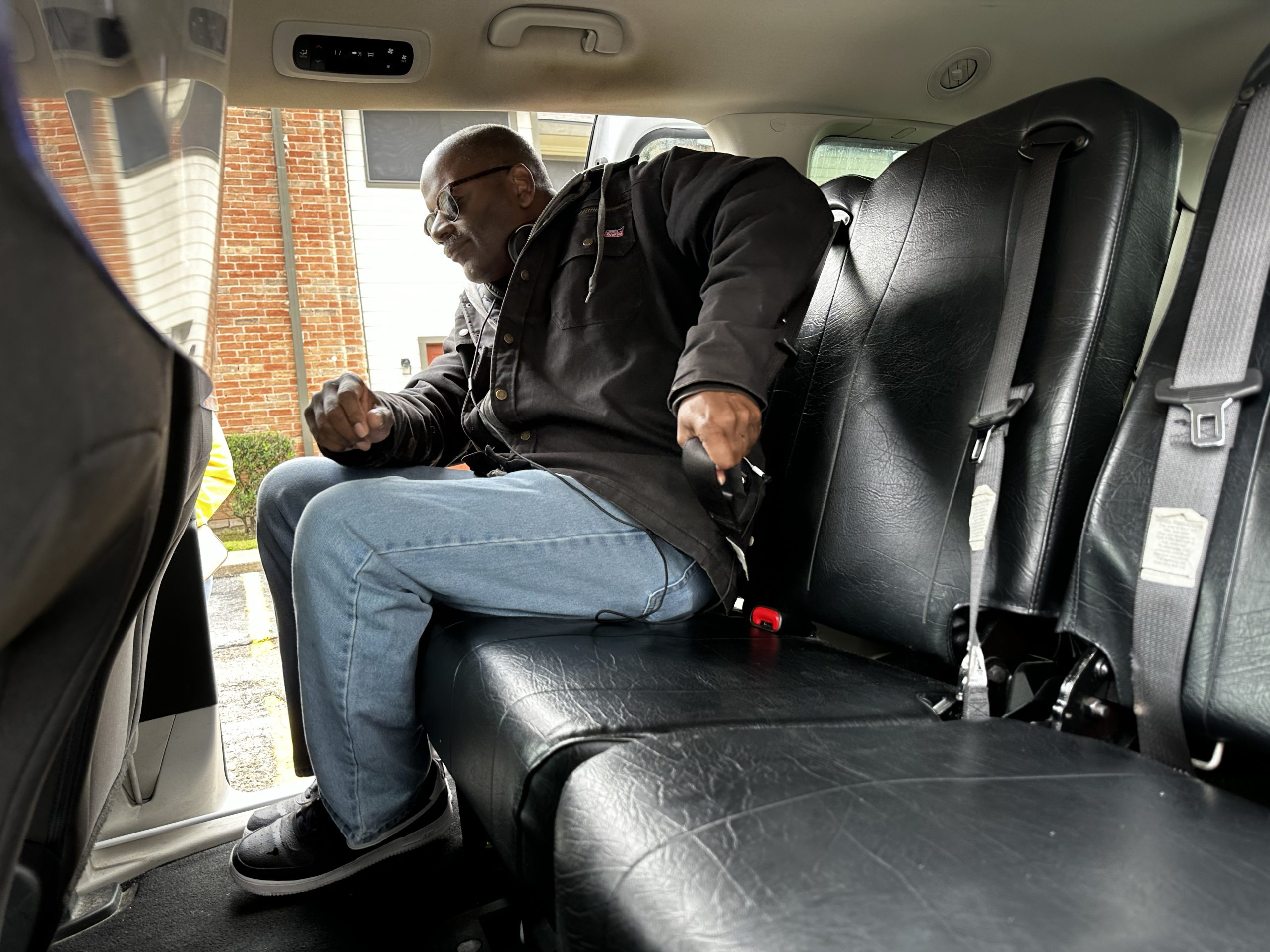
From January to April, METROLift says it tracked arrival times for nearly 391,000 pick-ups and more than 208,400 appointments, with some trips including both metrics. During that period, drivers arrived within 30 minutes 86.6 percent of the time, falling short of the agency’s 90 percent goal. That’s more than 80,500 pick-ups and appointments.
METROLift says it began meeting its 90 percent benchmark this summer by hiring more drivers. But even when METROLift drivers arrive within 30 minutes, they can still be tardy in the eyes of riders, officials acknowledged. In more than 92,000 cases from January to April, METROLift was 15 to 30 minutes late for pick-ups and appointments, according to an analysis of the agency’s ridership data by the Abdelraoufsinno.
Meanwhile, METROLift expects riders to be ready to leave within their scheduled pickup window. If a driver cannot locate a rider upon arrival, METROLift instructs them to wait five minutes as a “courtesy” before leaving, a spokesperson confirmed.
“Part of our frustration is, as people with disabilities, I think it’s forgotten that we want to be on time,” said Stacie Gallegos, the president of Houston’s chapter of the National Federation of the Blind. “Punctuality is important to everybody. But I don’t think the METROLift people understand that aspect. Punctuality shouldn’t be waived just because it’s affordable.”
In an ever-growing city like Houston, officials said consistent, faultless service is difficult to achieve.
METRO’s service area has a population size of more than 3.75 million and spans more than 1,300 square miles, according to Federal Transit Administration data. METROLift covers 808.4 square miles of that, officials said. That area includes the city of Houston, portions of Harris County and Fort Bend County, but it also extends to northwest Houston, areas around Hobby Airport, south of Missouri City, and in parts of Kingwood and Humble and Clear Lake.

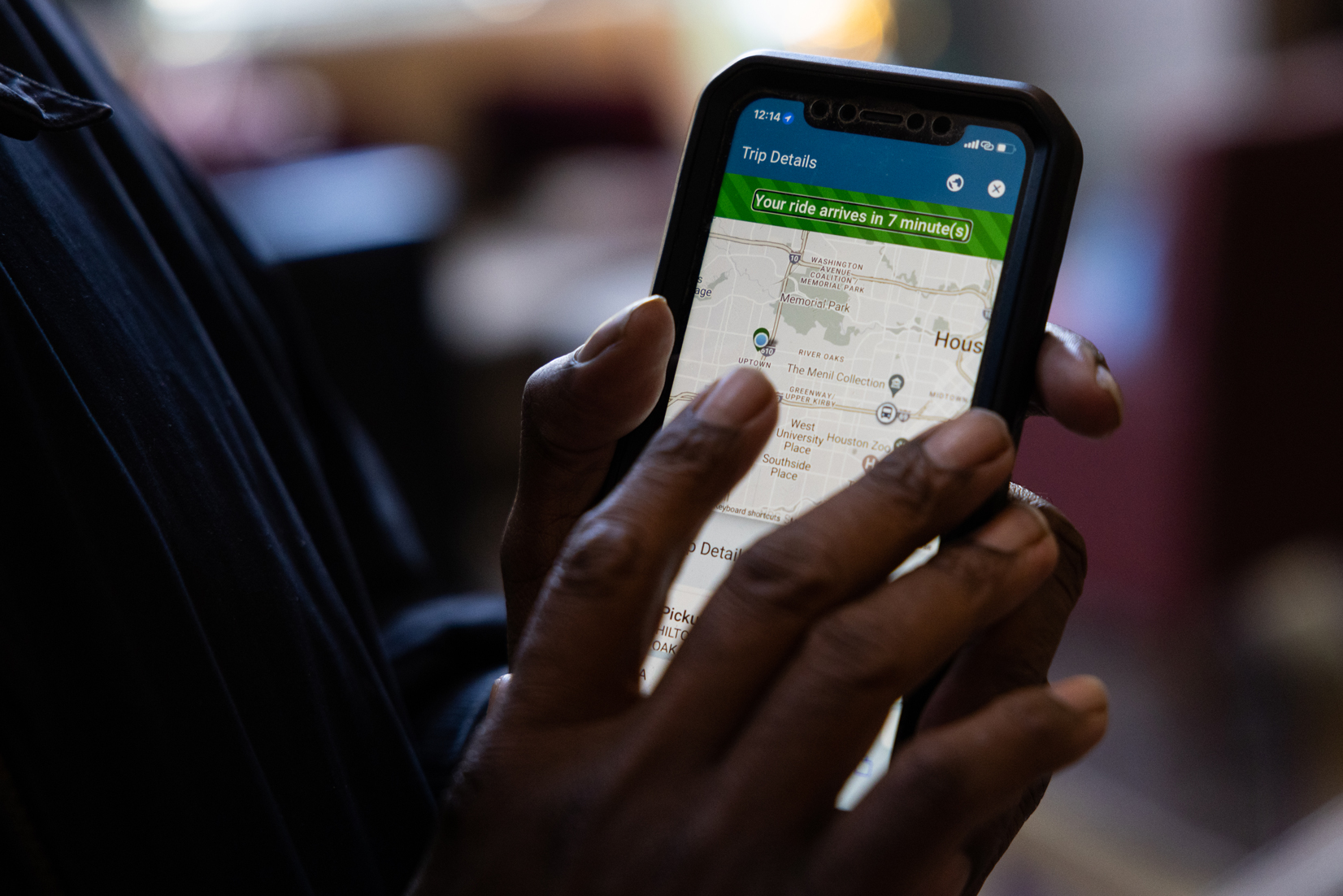
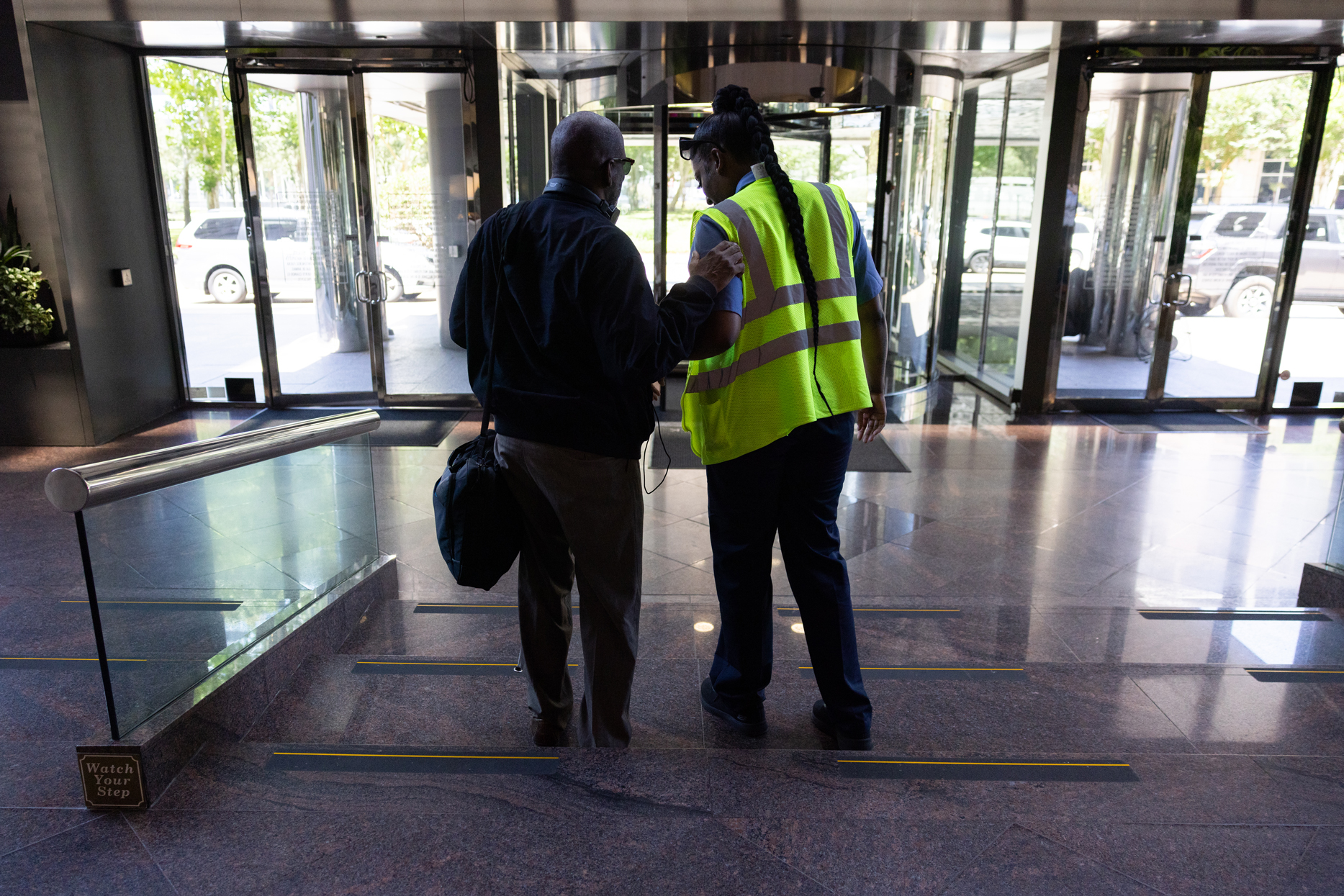
“It's a large system,” said Arturo Jackson, METRO’s vice president of specialized transit services. “So out of a large system, you're going to have some challenging situations every day.”
METROLift has averaged more than 1.7 million riders per fiscal year in the last 10 years. Service eligibility applications have soared since the onset of the pandemic in 2020 by nearly 65 percent, according to public data.In fiscal year 2021, its ridership was more than double the paratransit service in Dallas, data shows, and officials only expect the demand to grow.
“The ridership on the METROLift service continues to increase,” Jackson said. “And it's different than, say, Southwest Airlines or United Airlines where when they don't have the pilots, they cancel the flights. Well, we still receive the requests from the METROLift riders … and so we have to accommodate those requests.”
Officials say a number of variables beyond METRO’s control contribute to late pickups, such as traffic, poor weather, accidents or stopped trains. Then there are industry-wide issues like bus driver shortages that have wreaked havoc on the transportation industry since the onset of the pandemic.
“They don't have enough staff to run the service to the level that they need to,” said Gabe Cazares, the executive director of LINK Houston, a nonprofit that advocates for equitable transportation, and former director of the Mayor’s Office for People with Disabilities.”
METROLift had 606 drivers in 2021 and 761 drivers in 2022 between its two contractors, MV Transportation and Transdev. To meet the growing demand, METROLift needs at least 770 bus drivers, Jackson said, but that number will fluctuate as the agency adds more service. While the agency was just shy of its goal for drivers, he said it’s been hard to recruit and retain talent.
“The competition for drivers has never been higher,” Jackson said. “We're competing against companies like Amazon, FedEx, UPS, all those different companies — we're competing for drivers.”
He’s confident that a decision by METRO’s Board of Directors in March to modify its contract with MV Transportation and fund an additional $17 million toward the recruitment, hiring and retention of drivers is a step in the right direction to combat its ongoing shortage and competition challenges.
MV Transportation did not specify how many drivers are needed to meet the growing demand of paratransit service in the Houston region, but acknowledged that it experienced a shortage.
“Like many providers after the pandemic, we experienced a driver shortage. However, we currently maintain adequate staffing levels to meet the demand for our services in the Houston area,” a spokesperson said via email.
Transdev did not return requests for comment.
METROLift’s contractors have raised their wages from at least $15 an hour to $18 an hour, Jackson said. “We're putting the resources behind our mission and our goals where we're doing the things that are needed,” Jackson said.
Lex Frieden, a longtime disability rights advocate and METRO board member, said it helps that METROLift has someone like Jackson, who happens to have a disability and uses the service, running the program.
“There's something significant about people who are users and understand the frustrations of an ordinary passenger,” said Frieden. “There's something symbolic about it, and it has an impact on the way the services are provided.”
Frieden, who played a critical role in the passage of the Americans with Disabilities Act by the Bush administration in 1990, said Houston has always maintained a “very comprehensive” paratransit system and is seen as a center point for people with disabilities around the region and country.
“There are a lot of people with disabilities who choose to live in Houston because they can get back and forth to work and to the doctor's offices,” said Frieden.
“Many people are alive today because they can get to their appointments in the Medical Center. Many people have jobs today because they can get back and forth to work.”
A history of complaints
Riders have complained for decades about the METROLift experience. Their concerns range from poor customer service and employee misconduct to poor sensitivity training and long wait times.
A 2010 compliance review by the Federal Transit Administration found that service complaints accounted for more than half of the 1,667 complaints received from July 1, 2009 through June 30, 2010. Almost all of those complaints, 96.5 percent, regarded late or missed trips.
According to public records, METROLift received roughly 3,500 complaints in its fiscal year from October 2021 to September 2022, roughly 45 percent of which regarded scheduled trips. Although the number of complaints increased since 2010, they were still a fraction of the nearly 1.5 million rides in 2022.
The agency also received more than 2,000 compliments that year, with roughly 68 percent commending courteous behavior. In fiscal year 2023, METROLift received roughly 1,900 compliments, with roughly 84 percent commending courteous behavior.
In that same year, the agency also received fewer complaints — roughly 3,000 — but data shows the percentage of those dedicated to scheduled trips jumped by 18 percent.
More than 50 riders attended a July METROLift community meeting to learn of service updates, new programs, and to air some of their grievances directly with agency representatives. Among their concerns were rude dispatchers, technical glitches with EZ wallet, a feature that allows riders to store funds on their online account, and a lack of sensitivity training for drivers.
Cassandra Boudreaux, a METROLift service supervisor, encouraged riders to contact her directly if they experience a rude dispatcher and also announced plans to better facilitate cohesion between drivers and dispatchers. This includes having drivers come to their office to learn the day-to-day responsibilities of a dispatcher and setting aside time for dispatchers, particularly those who are fairly new to Houston, to ride along with drivers.
“That way they can see what it takes to tie down three wheelchairs,” Boudreaux said as the crowd applauded and cheered in excitement.
Disability rights
Christopher McGreal, an attorney with advocacy group Disability Rights, which provides free legal advice to people with disabilities, encourages his clients to log their trips to document a pattern of problems over time.
“Unfortunately I think a lot of individuals may not know their rights or are used to the unfortunate long rides,” he said.
As a result, he said, many may not realize they have the power to bring about change by enforcing their rights either through litigation or by submitting a complaint to the FTA. Individuals can submit a ”reasonable modification” request that requires agencies to change their policies, practices and procedures to avoid discrimination and ensure that their programs are accessible to individuals with disabilities.
Battiste said his routing issue was fixed by METROLift only after months of pestering customer service through alternating email exchanges. Now, he routinely gets to work on time by 7:50 a.m. on a more “geographically efficient” route, he said.
Jackson, a METROLift official who uses a wheelchair after suffering a spinal cord injury, said he knows firsthand what it feels like to have to depend on others for rides.
“Transportation is just so important and that's why I am passionate about it because I do know how hard it is to get a job as a person with a disability and how hard it is to keep it,” he said. “My wife is a dialysis nurse. I know how important it is to go and get those treatments and how tired people are after they finish those treatments.”
He also is a METROLift passenger and occasionally rides under different pseudonyms to get a true rider experience and understand the day-to-day frustration of everyday passengers.
“We care,” Jackson said. “We really do care about the service that people receive and we want to be the best. People deserve the best transportation.”
But driving paratransit is a much harder job and far more “time-consuming” compared to driving fixed route bus routes, he said.
With fixed route service, drivers continue on their route regardless of the customer being there. With paratransit service, drivers have to locate homes and apartments, knock on doors to locate the rider and see if they need assistance, and contact dispatch to call the customer if they’re unable to locate the customer.
‘I was so embarrassed’
Houston is an outlier in comparison to other major metropolitan Texas cities because it only allows riders to schedule METROLift reservations one day prior to travel on weekdays. Those rides must be scheduled Monday through Friday during standard business hours from 8 a.m. to 5 p.m. The ADA requires paratransit reservations to be made at least one day in advance, but the law also allows agencies the option to extend the reservation period by up to 14 days in advance.
While few transit agencies allow up to 14 days in advance for reservations, other major Texas metropolitan cities are striking a balance. In San Antonio, trips can be scheduled from one to four days in advance. In Dallas, trips can be scheduled up to two days in advance, and in Austin, trips can be scheduled up to six days in advance through its online booking and automated telephone system and up to three days in advance through a live agent.
Battiste wishes he could schedule rides more than one day in advance. But Jackson said allowing customers to request trips up to 14 days in advance, which is the maximum permitted under the ADA, builds hold times, can cause capacity constraints and lead to a waste of resources if riders forget about trips scheduled weeks in advance.
“The way we do it where people call in for tomorrow, there's a higher degree of certainty that they're going to travel.”
Ultimately, extending ride schedulings beyond one day in advance is not at the top of the agency’s priority list, Jackson said, noting it barely has received any complaints on the matter.
METROLift is widely praised for its affordability, particularly in a community where roughly 40 percent of people with disabilities between the ages of 18 and 65 are employed, compared to nearly 80 percent of those without disabilities.
Fares are as low as $1.25 for a one-way ticket, $12.50 for a 10 trip book plus a free ticket, $47.25 for a monthly pass, and $418.50 for an annual pass. Monthly and annual passes both come with unlimited rides, and afford riders one attendant to ride with them free of charge. METROLift customers and one attendant also are able to ride all METRO bus, rail, METRORapid and METRO curb2curb services for free.
But some riders say the low fees come with a cost.
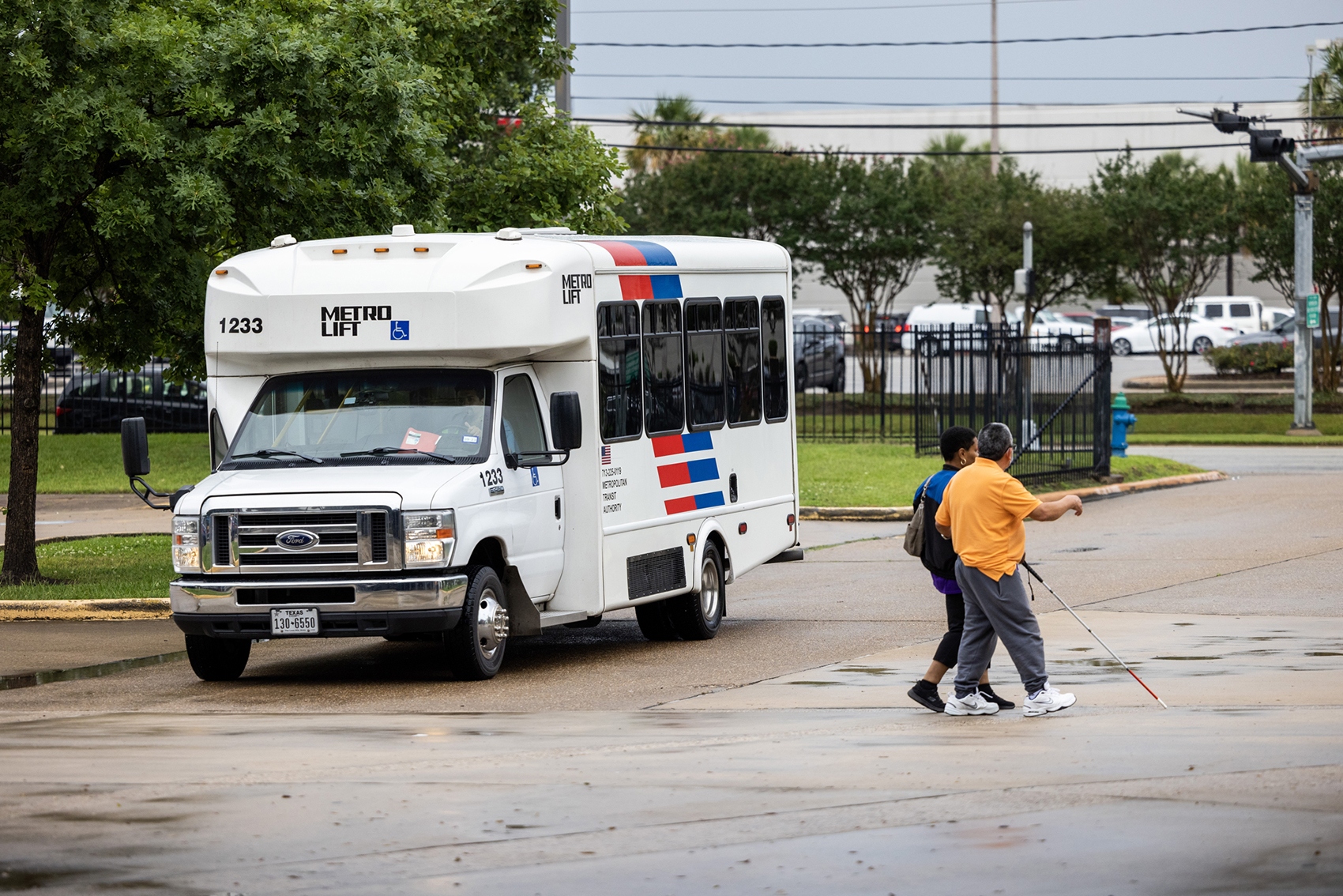
Southeast Houston resident Liz Wisecarver occasionally uses METROLift to save money on recreational weekend trips that are fairly distant and would rack up a hefty Uber bill.
On one particular trip, she saved about $40 to test out a new gym, but questioned if being frugal was worth the hassle.
She had no issues getting to the gym, Curves Houston, which is located in the Spring Branch east area, nearly 30 miles from her home. But she encountered a major delay on her return ride home. She had waited for nearly two hours, the gym was closing soon at noon and METROLift’s customer service repeatedly put her on hold when she called to get an estimated time of arrival.
“I was so embarrassed because the lady there was like, ‘Well, I don't want to make you be outside.’” Wisecarver said.
METRO has since improved its website tremendously, she said, allowing riders to more easily book trips and track their ETA. Riders also receive automated updates on the status of their rides prior to arrival, according to the agency.
“I’m glad that I don’t have to use it for work,” said Wisecarver, who works as an independent demonstrator at handcrafting company, Stampin’ Up.
“I think it’s a great service, and I appreciate it when I need it, but if that was my only option, it seems stressful,” she said. “I guess you get what you pay for, but you’re kind of paying in other ways when you’re getting a cheaper fee.”
Managing editor John Tedesco contributed to this report.


